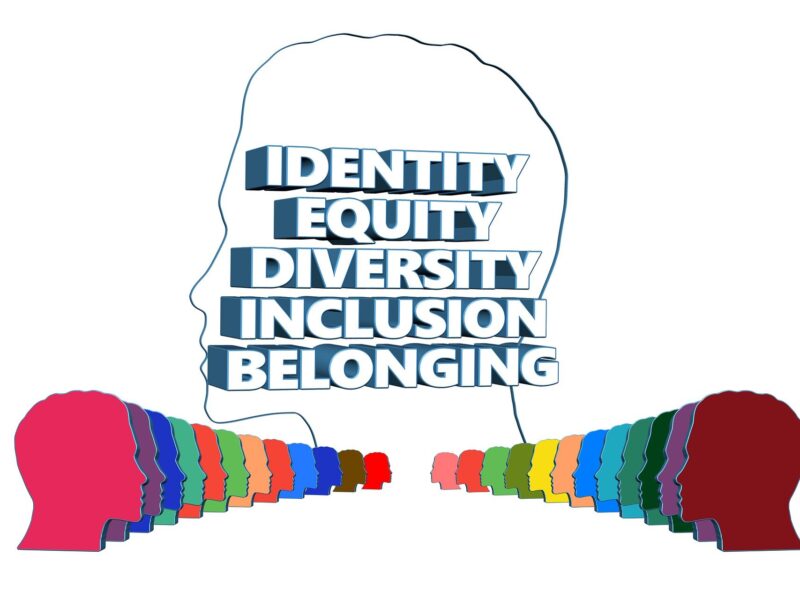A few weeks ago, I posted an interview with Holly Owens (read it here). During the interview, one of the topics we talked about was “imposter syndrome”.
“What is imposter syndrome?” You might ask.
According to Wikipedia:
Impostor syndrome, also known as impostor phenomenon or impostorism, is a psychological occurrence in which an individual doubts their skills, talents, or accomplishments and has a persistent internalized fear of being exposed as a fraud.[1] Despite external evidence of their competence, those experiencing this phenomenon do not believe they deserve their success or luck. They may incorrectly attribute it to the Matthew effect, or they may think that they are deceiving others because they feel as if they are not as intelligent as they outwardly portray themselves to be.[2] Impostor syndrome can stem from and result in strained personal relationships and can hinder individuals from achieving their full potential in their fields of interest.
However, I recently came across an article in Glamor magazine, of all places, that says that there might be more to imposter syndrome that meets the eye. The article, titled “There are five different types of imposter syndrome, so here’s how to identify (and challenge) yours” includes a review of a book by Dr. Valerie Young titled The Secret Thoughts of Successful Women: Why Capable People Suffer from the Imposter Syndrome and How to Thrive in Spite of It in which Dr. Young states that there are actually five different types of imposter syndrome.
Dr. Young is the co-founder of the Imposter Syndrome Institute, an organization dedicated to helping people succeed by overcoming imposter syndrome. According to Dr. Young, an important factor of overcoming imposter syndrome is to recognize exactly which of the five groups you fall into. Those groups are:
- The perfectionist – One who sets extreme high goals for themselves and feels like a failure if the do not meet 100% of those impossible goals. They question their competence unless everything goes according to plan.
- Perfectionists should learn to accept their mistakes and see them as a way to learn move toward even greater success.
- The natural genius – Someone who has received high marks throughout their school days with little effort, but now must deal with situations where they must work hard and struggle, causing them to feel as if they are not good enough.
- Natural geniuses should focus on seeming themselves as a work in progress and acknowledge that everyone must being somewhere. They should challenge themselves to practice skills they have trouble mastering.
- The rugged individualist – Someone who feels that asking for help is a sign of weakness and success is only gained if they achieve it on their own.
- People in this group need to realize that knowing when to ask for help is a vital life skill. Dr. Young recommends that they speak with people that inspire them to learn about the people that helped those idols along their own paths to success.
- The expert – Someone who spends so much time researching and gathering information that they never actually start the project they are researching for. Basically, it’s possible to become so consumed with approaching something new as an expert that you hinder your own success. An example of this is someone who refuses to apply to a job they want because they do not meet every single criteria in the job description.
- Dr. Young recommends that people in this category should move toward a learning-on-the-go approach. This can help them to learn that they are capable of improvising and learning in a shorter timeframe, thereby increasing their confidence in their abilities.
- The superhero – These are people who try to prove that they are not imposters by pushing themselves to work harder than everyone around them. These people can burnout fairly quickly.
- Superhero-types need to learn to set and enforce healthy work/life boundaries. Dr. Young also suggest that they try to move away from using external validation as the measure by which they determine their self-worth. Possible ways of doing this would be to take up a new hobby or change routines.
Dr. Young acknowledges that these are general categories and it’s possible for a person to fit into multiple groups.
As for myself, I see many aspects of both the perfectionist and the expert. The perfectionist was easy to identify with. But I was surprised that I identified with the expert as well. I already new that is was possible to be come so obsessed with gaining training and education that you miss out on the opportunity to actually put that knowledge to use. And I already new that it’s fairly common, especially so for women, to feel like you cannot apply for a job unless you already have all of the skills in place for that job. However, I never thought of that as a symptom of imposter syndrome.
It’s interesting to learn more about the things that can be seen as my own imposter syndrome triggers. By gaining more knowledge about those triggers, I can also find more ways to deal with them.


